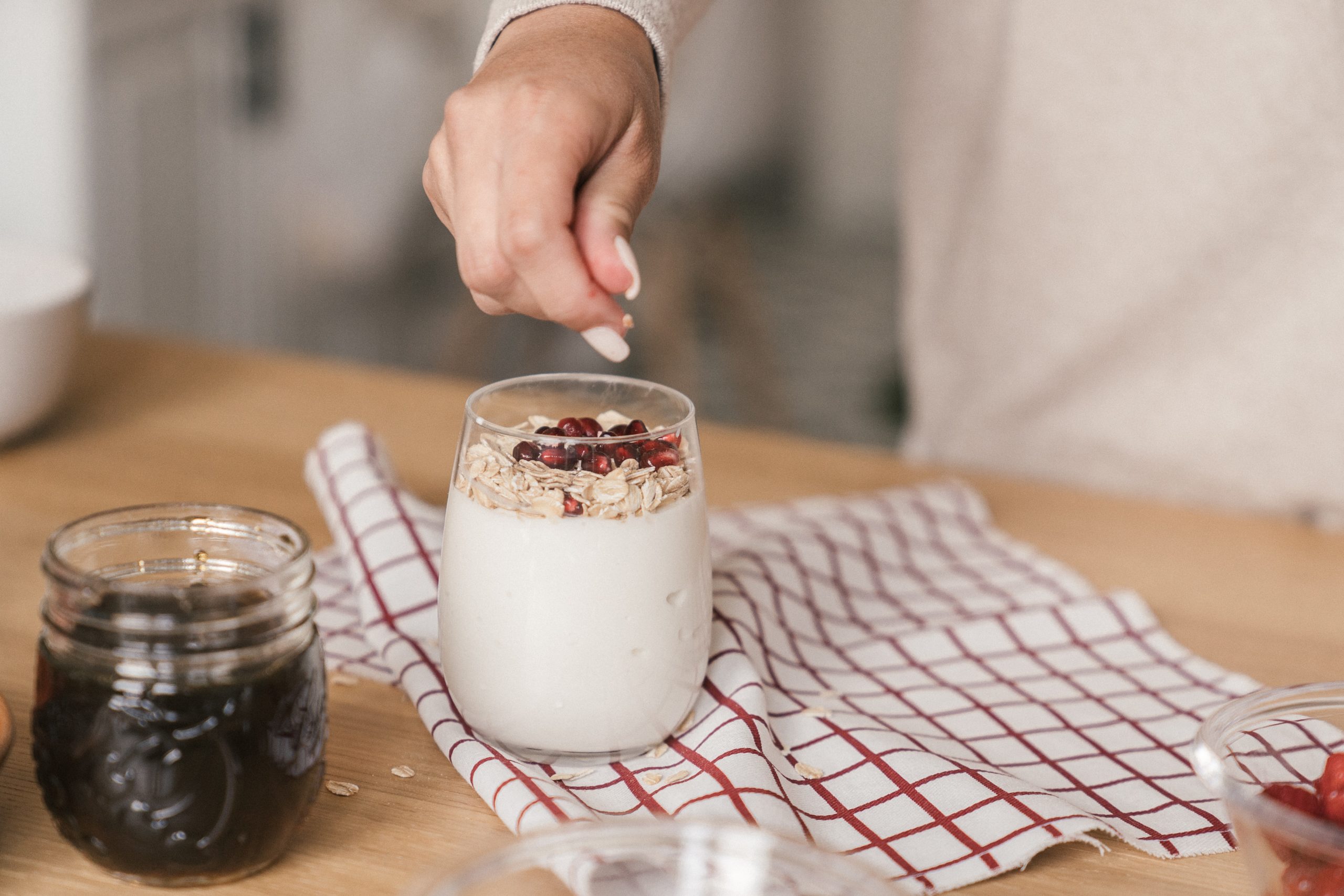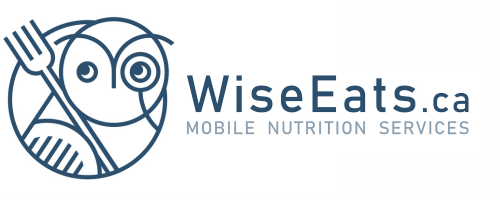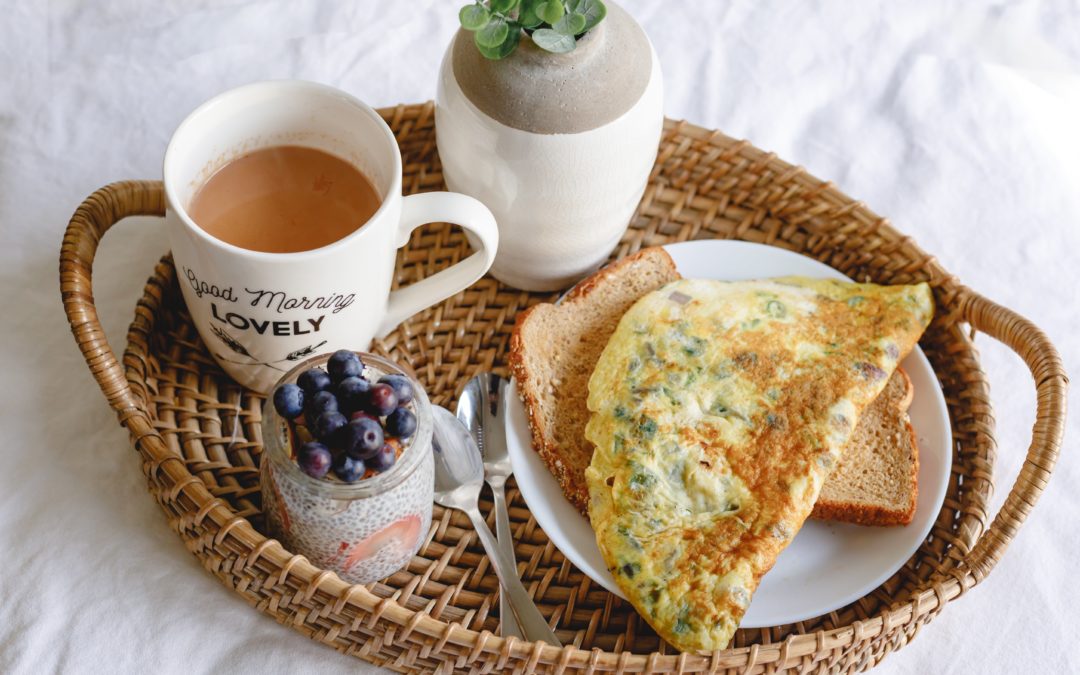Has your breakfast been causing some uncomfortable bloating, or stomach cramping? You’re not the only one. In fact, many people with IBS (irritable bowel syndrome) avoid breakfast because they are trying to avoid the symptoms that start shortly after.
But, what many people do not realize, is that many trigger foods are commonly eaten with breakfast. This includes many fruits and dairy. Understanding which foods are triggering your symptoms can help you make swaps and and build an IBS-friendly breakfast!
Benefits of Breakfast
Although skipping breakfast may help reduce the unpleasant symptoms of IBS, it is still an important meal with many health benefits. Some of the benefits of eating breakfast include,
-
- Controlling your weight
- Providing your body with energy to start the day
- Supplying your body with important vitamins and minerals
Identifying and eliminating the triggers in your breakfast can help you start the day on the right food (and not in the bathroom).
Building an IBS-Friendly Breakfast
One way you can beat the bloat and eliminate symptoms from your breakfast is by eliminating high-FODMAP foods. Unfortunately, this may be a long list of foods that may be off-limits, and restrict your diet to a select few meals. This can also limit nutrient-dense foods (foods that are a good source of nutrients) as well as your vitamin and mineral intake which may impact other aspects of your health.
Although the low-FODMAP diet does require eliminating all high-FODMAP foods, it is not intended to be a long-term diet. You can learn more about the low FODMAP diet from my post.
Alternatively, you can swap high-FODMAP foods for low-FODMAP options. Some examples of this include swapping apples for pineapple or kiwis. Making these swaps can help you include a wider variety of foods in your diet. If you are stumped for breakfast ideas, there are many low-FODMAP recipes that you can try, including this delicious Italian melon smoothie, or these filling sweet potato egg nests.
Building an IBS-friendly breakfast can feel overwhelming at first, but working with a registered dietitian can help take the guesswork out of finding your triggers. A registered dietitian can help you identify your personal triggers and provide you with personalized suggestions to eliminate your symptoms, without compromising delicious meals. You can learn more about working with an RD to manage your IBS here.
Foods to Avoid
As I mentioned earlier, there are some high-FODMAP foods and beverages that are commonly included in breakfast. Reducing the amount of these foods and drinks in your breakfast, or swapping them for low-FODMAP alternatives can help stop unpleasant symptoms.
You can find a list below of some high-FODMAP foods to be aware of when building your IBS-friendly breakfast.
Teas
FODMAPs can be found in many beverages, including teas. Teas often contain oligosaccharides, which are better known as the O in FODMAPs. Some high-FODMAP teas that you may want to avoid during breakfast include,
-
- Oolong
- Chamomile
- Fennel
- Chicory root extract
- Carob
In addition to choosing a low-FODMAP tea, it is important to remember that adding dairy products and sweeteners can increase the amount of FODMAPs in your cup. Some sweeteners such as honey are considered high-FODMAP foods.
Fruits
You can find high amounts of FODMAPs in many fruits and veggies. Although fruits can add tons of flavour and nutrients to breakfast, some of them are high in FODMAPs and can trigger your symptoms. Some high-FODMAP fruits used in breakfast are,
-
- Apples
- Apricots
- Bananas
- Blackberries
- Cherries
- Dates
- Dried figs
- Grapefruit
- Nectarines
- Mango
- Peaches
- Plumes
- Prunes
- White peaches
- Watermelon
Remember that juices made from these fruits also contain high amounts of FODMAPs and you may need to avoid them.
Dairy Products
Dairy products are a common source of FODMAPs. Some high-FODMAP dairy products include,
-
- Yogurt
- Custard
- Ice cream
- Cottage cheese
- Ricotta cheese

IBS-Friendly Foods to Try
Although there are many high-FODMAP foods that may need to be avoided in an IBS-friendly diet, there are also many low-FODMAP options to try instead.
Juices
As I mentioned earlier, high-FODMAP fruits have high-FODMAP juices. However, there are some low-FODMAP options you can try such as,
-
- Cranberry juice
- Orange juice
- Carrot juice
Teas
-
- Black
- Green
- Peppermint
- Rooibos
- Kombucha (less than 180 mL)
- Chia
Milk
-
- Rice milk
- Cashew milk
- Almond milk
Lactose-free and soy milk are also good low-FODMAP choices but do contain more protein which may impact your digestion.
Fruits
An IBS-friendly breakfast does not mean a fruit-less breakfast. Some low-FODMAP fruits you can add to your breakfast include,
-
- Green kiwi
- Cantaloupe
- Mandarin
- Orange
- Pineapple
Nuts
-
- Macadamia
- Peanuts
- Walnuts
- Pumpkin seeds
IBS-Friendly Breakfasts When You’re Travelling
Travelling with IBS can be overwhelming, especially if you don’t have your comfort tools to treat your symptoms. Will your accommodations offer low-FODMAP foods? Can you purchase low-FODMAP snacks and ingredients? Even staying with family and friends can be stressful when you are not in control of what foods and beverages are offered.
Some ways to reduce the stress around travelling include,
-
- Checking what foods are being served or are available with your host.
- Bringing your own snacks. You can also pre-make snacks to take with you on your trip such as these FODMAP-friendly cookies. You can check out my article, IBS-Friendly Snacks for more hunger-busting ideas!
The Takeaway
Although many people with IBS skip breakfast to avoid unpleasant symptoms this is not necessary! Eliminating high-FODMAP foods can stop your after-breakfast cramps, but can also limit your nutrient intake and impact your relationship with food. However, swapping your personal trigger foods for low-FODMAP alternatives and help you build an IBS-friendly breakfast, and give you more energy throughout your day!
Identify Your Personal Trigger Foods
Not sure what your trigger foods are? Working with a registered dietitian can help, with personalized suggestions and delicious meal plans that your whole family will love. Book a FREE discovery call today to learn more!
References
Breakfast. (n.d.). Better Health Channel. Retrieved April 27, 2022, from https://www.betterhealth.vic.gov.au/health/healthyliving/breakfast
FODMAP food list. (n.d.). Monash FODMAP. Retrieved April 27, 2022, from https://www.monashfodmap.com/about-fodmap-and-ibs/high-and-low-fodmap-foods/
Low FODMAP Diet for Irritable Bowel Syndrome | IBS Treatment. (n.d.). Gastroenterology Consultants of San Antonio. Retrieved April 27, 2022, from https://www.gastroconsa.com/patient-education/irritable-bowel-syndrome/low-fodmap-diet/
With a Bachelor of Science in Nutrition and Food Science, Rachel has over 15 years’ experience helping people address their health through nutrition.


